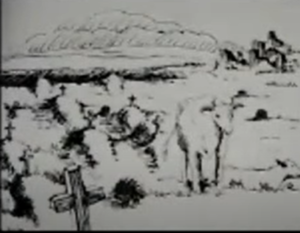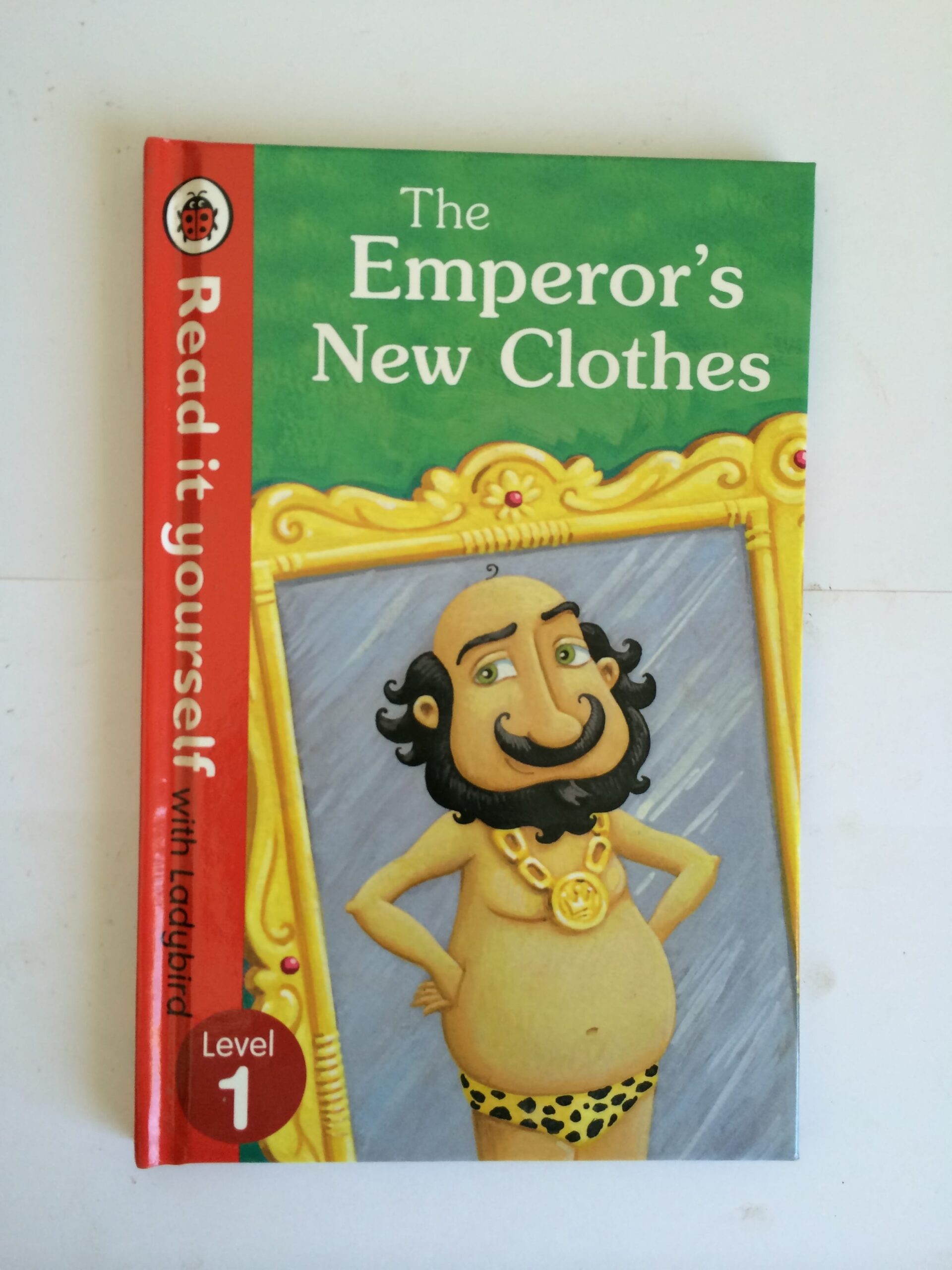5. Real Life in Exile
We had to change lodgings. Unfortunately, not for the better. On the one hand, we didn’t miss our disagreeable landlady. We now lived in a bedroom-cum-kitchen with a separate entrance in a house situated at the other end of the village near the road to Alejsk. On the other hand, it was a house difficult to heat. The small, antiquated stove where we lit our fire didn’t give off much heat and went out completely at night.
The wood we were allowed to use came mostly from broken fencing despite our living near extensive forests. But a simple citizen didn’t have the right to collect this wood. People who ordinarily never stole confessed their ‘sin’ in front of everyone else. One couldn’t really call it a sin. It was a matter of life and death to be able to heat one’s home when the outside temperature often fell to -40″.
We also had a large Russian stove in our room. We never used this as we hadn’t enough wood. Above its cold hearth there was a long wide brick shelf that I used as a bed. It’s always warmer higher up but despite this I was always cold. My father and brother slept side by side near the stove each on a wooden pallet. There wasn’t a mattress, of course. Not even a straw one. Before blowing out the oil lamp we all put on as many clothes as possible: cardigans, fur-lined coats, thick camel-skin overcoats.. They didn’t really warm us when we took them down from the frozen walls of the hut.
At the same time, the large number of hair and body lice bit us, made us itch and prevented us from sleeping. We spent our nights scratching ourselves and it was extremely unpleasant. In Czarysz on sunny days we could see the neighbouring Kazakh women sitting on their doorsteps with their children on their knees looking for head lice. They would then squash them with a large knife.
The ‘chaty’ houses were built with big logs and were poorly insulated, letting in both the cold and the lice. There wasn’t a really effective way of fighting this plague. There were public buildings containing showers similar to a primitive ‘sauna’.
They contained a large Russian stove kept white-hot which heated water to the correct temperature in large cisterns. This we then liberally splashed over us. Obviously in such an overheated atmosphere you sweated a great deal but this wasn’t enough for some women who in order to heighten the effect would hit themselves with birch rods to get warmer and open the pores of their skin. After one such ‘shower’ I felt so ill that I never went back again. In any case the lice remained. The ‘bania’ showers which we were to use later on our journey through the towns of the Asiatic Soviet Union were not much better.
In our lodgings, in addition to the big stove, the two camp beds and our suitcases, there were only a small table, two chairs and a shelf on the wall near the window where we kept our crockery: three glasses and plates, spoons, knives and forks, a small milk pan, a cauldron and a small teapot for ‘kipiatok’ (hot water) to make lime tea. We collected our water in pails from the well near the house next to which was a small outhouse containing a seat less (hole – in -the – ground) toilet. In order to get washed in the morning we had to break the ice on the water we’d brought in the night before.
Next to our house lived a large Muslim family; a Polish secretary from Warsaw lodged with them. She was an oldish woman who, through lack of space, slept on the floor next to the large Russian stove. She would often come to us complaining because her landlady when getting up early would bump into her while working at the stove. Sometimes she’d tried to extort some objects from Madame Sophie which she’d been carefully keeping in order to exchange later for food. They weren’t bad people. They would sometimes invite her to eat from the same dish. One by one they would use their fingers to help themselves to food. This way of eating didn’t really appeal to me very much, but I secretly envied Sophie her meal which was richer and more plentiful than ours.
All our needs were reduced to the minimum. We only had an old Russian diary to read and our days were filled with the worry of finding something to eat. The little bit of bread we had was eaten down to the last crumb (only one member of the family was now working and thus eligible for the bread ration).
Each day, like a beggar, I’d walk the streets and propose to exchange our table- or bed-linen and clothes for potatoes, milk or even a pumpkin. At one house I’d often see a young friendly disabled girl sitting at a window. I hoped to exchange a pretty ‘apaszke’ (scarf) with her but she didn’t have much to barter either.
Thus was life in the Soviet Union: the daily struggle for survival, both materially and physically against a background of the political struggle for power. That evening I returned home without any food. I thought about God while looking at the beautiful night sky lit by a multitude of stars. We had nothing to eat on such a beautiful night and once more we went to bed very hungry.
We hadn’t received any bread or potatoes and had only the strength to endure famine and the courage to stand firm and survive the worst moments. A short time later my father was given the job of helping Mr Wiadiskine. He was the pompously sounding Director of ‘leschosu’ or forestry development. My father spoke Russian. He knew about accountancy, bookkeeping and forestry and would be able to help Mr Wiadiskine.
The latter however had to be careful not to show his gratitude openly and liking for my father. Young Wolodzia, assistant to the Director, was afraid of losing his job. He once showed his jealousy when the Director had lent my father a horse belonging to the ‘laschoz’. Such a situation could lead to charges being made before the militia, the ultimate power in the village, and the consequences for my father and the Director could be serious. Thus, the Director was very discreet. Another time he gave us some wood for the stove and advised us to collect it once night had fallen.
My father was now entitled to a ration of 500 grams of strong black bread, something we’d missed for some time. We used to divide it into three equal parts which had to last the whole day and was often our only source of food. To buy this bread you needed not only some ‘kopiejek’ but also to show your work permit which was only accepted in one shop situated at the end of the village on the road leading to Kedrovka. You could also find bottles of ‘eau de cologne’ which some people bought to get drunk on.
The days and the weeks passed by in this way. Winter was very cold with a great deal of snow. People weren’t ill very often despite the punishing lack of food because the continental climate and fresh mountain air killed many of the microbes.
 We began cautiously, and in private, to talk more and more about the ‘amnesty’: it could mean a Polish army being formed on Soviet territory and all the deported families grouped together. It was so unbelievable we didn’t dare to hope too much. We were cut off from the rest of the world by high mountains and there wasn’t any regular or official transport leading to the rest of the country.
We began cautiously, and in private, to talk more and more about the ‘amnesty’: it could mean a Polish army being formed on Soviet territory and all the deported families grouped together. It was so unbelievable we didn’t dare to hope too much. We were cut off from the rest of the world by high mountains and there wasn’t any regular or official transport leading to the rest of the country.
The authorities continued to keep silent. However, one day a young Polish second lieutenant arrived for Christmas looking for his wife and two young children. They were living in a hovel which clung to the mountain slopes surrounding the village. You entered it as if you were going down into a cellar. We spent New Year’s Eve together and had an enjoyable meal with the food the father had brought from the army. We walked home through our sleepy and peaceful village from this late night dancing and floundering in the white crunchy snow. Wide awake, we dreamed of a better future in the year that had just begun:1942. The young officer’s family left the village fairly quickly, the children wrapped in blankets in a big linen basket because it was -40″.
The thought of leaving filled our minds more and more. I’d never lost hope but couldn’t convince myself it would ever happen. But my father had thoroughly questioned the second lieutenant about his journey, and we began to prepare our return journey, perhaps to freedom.




